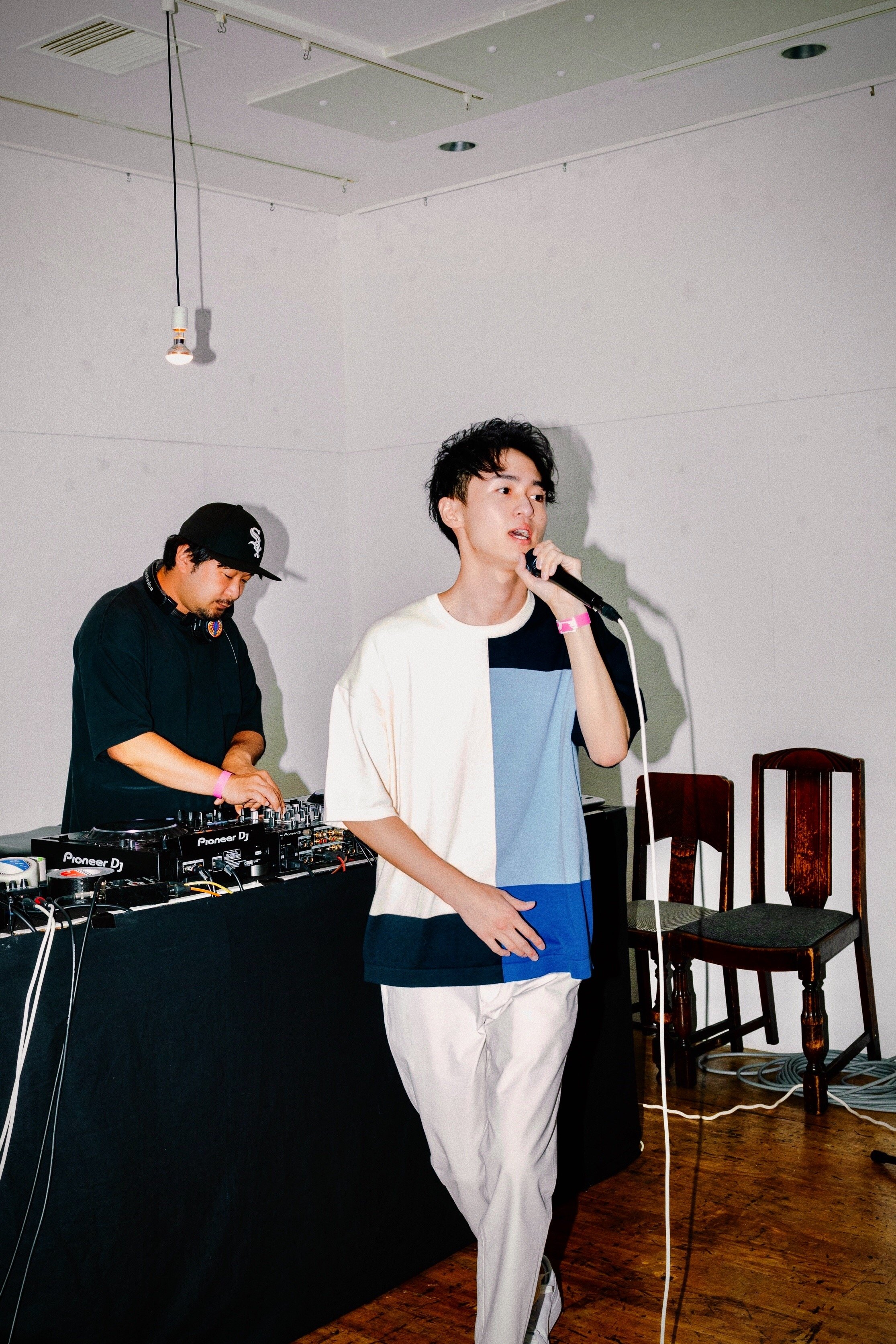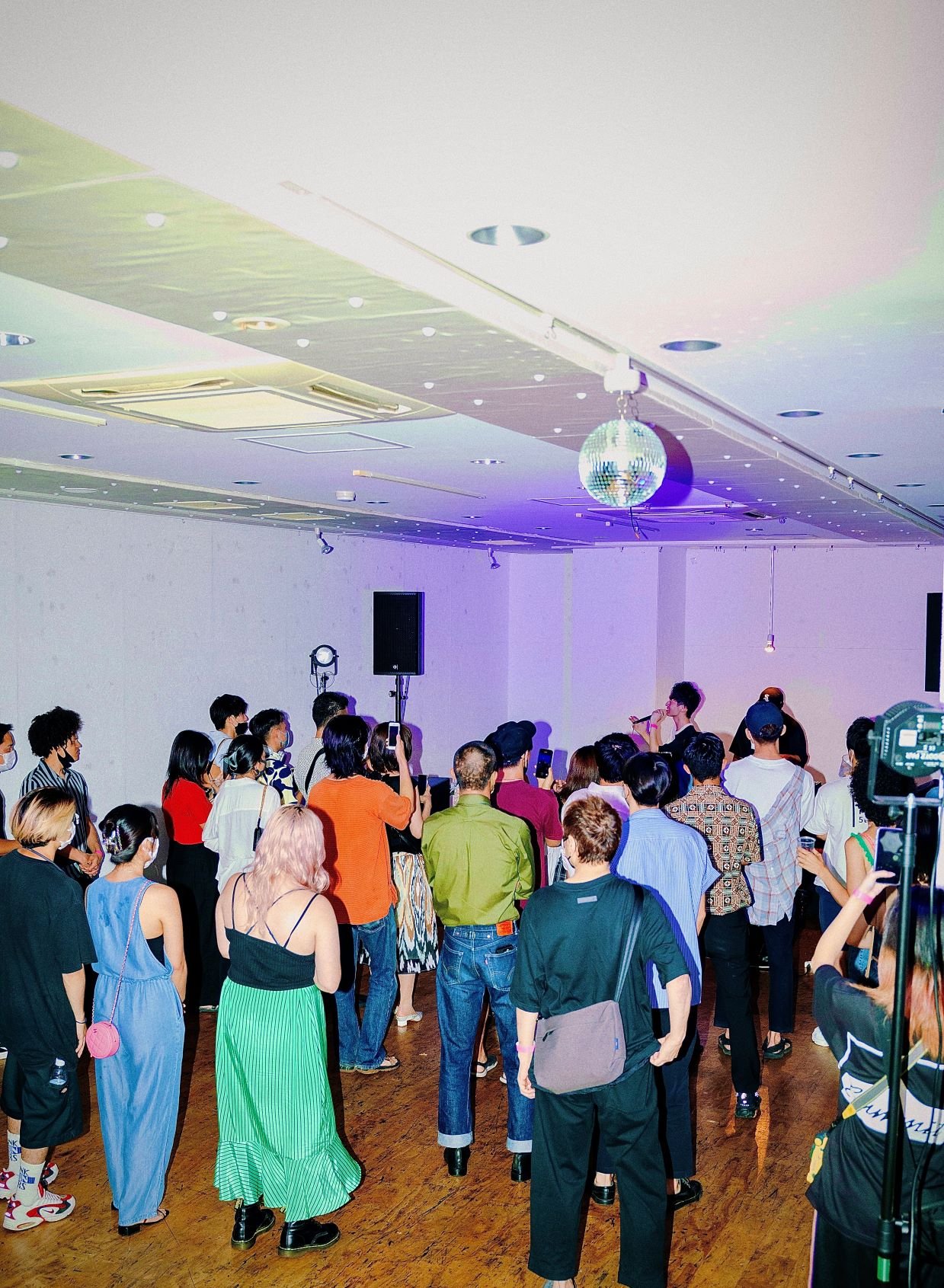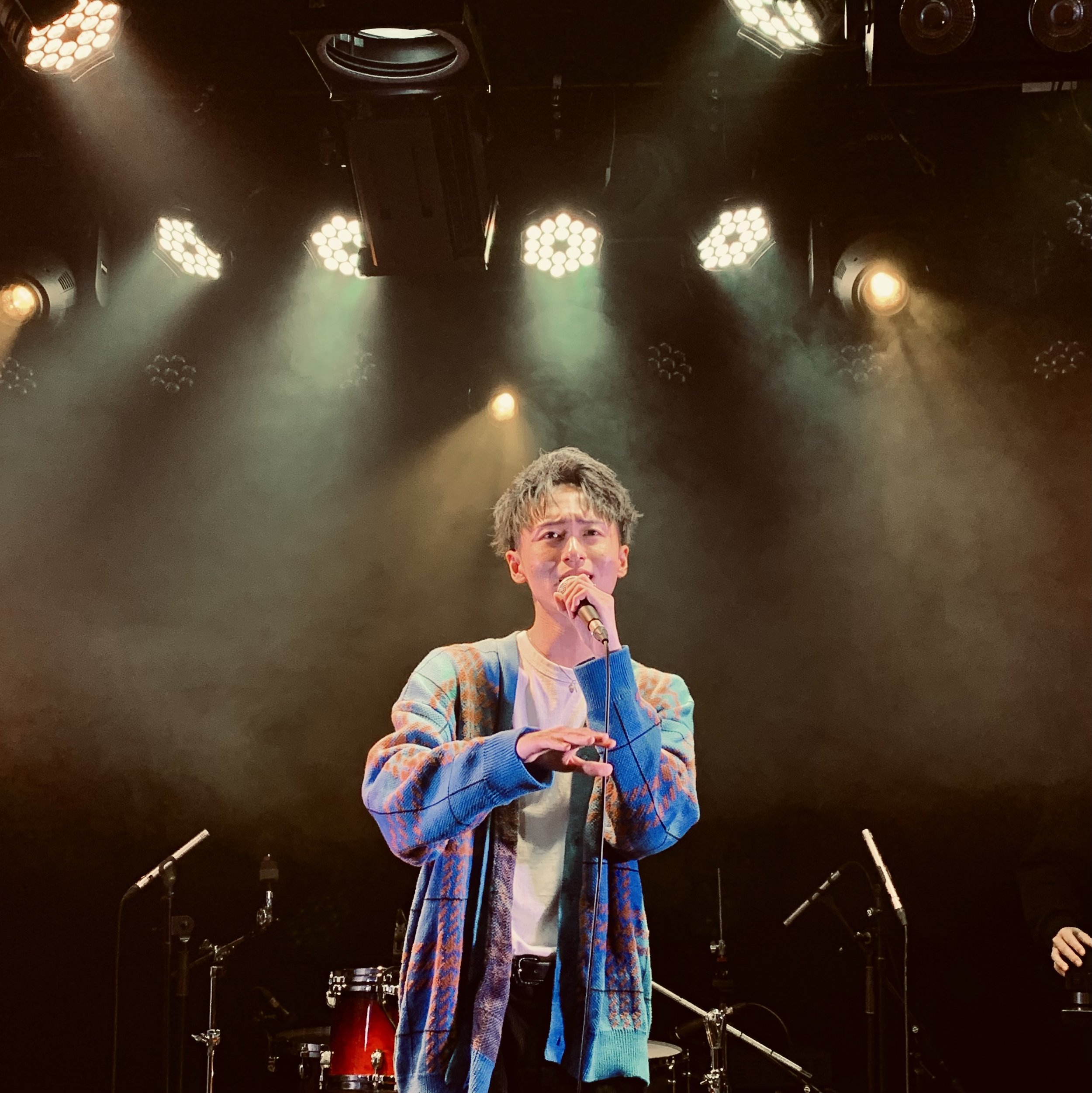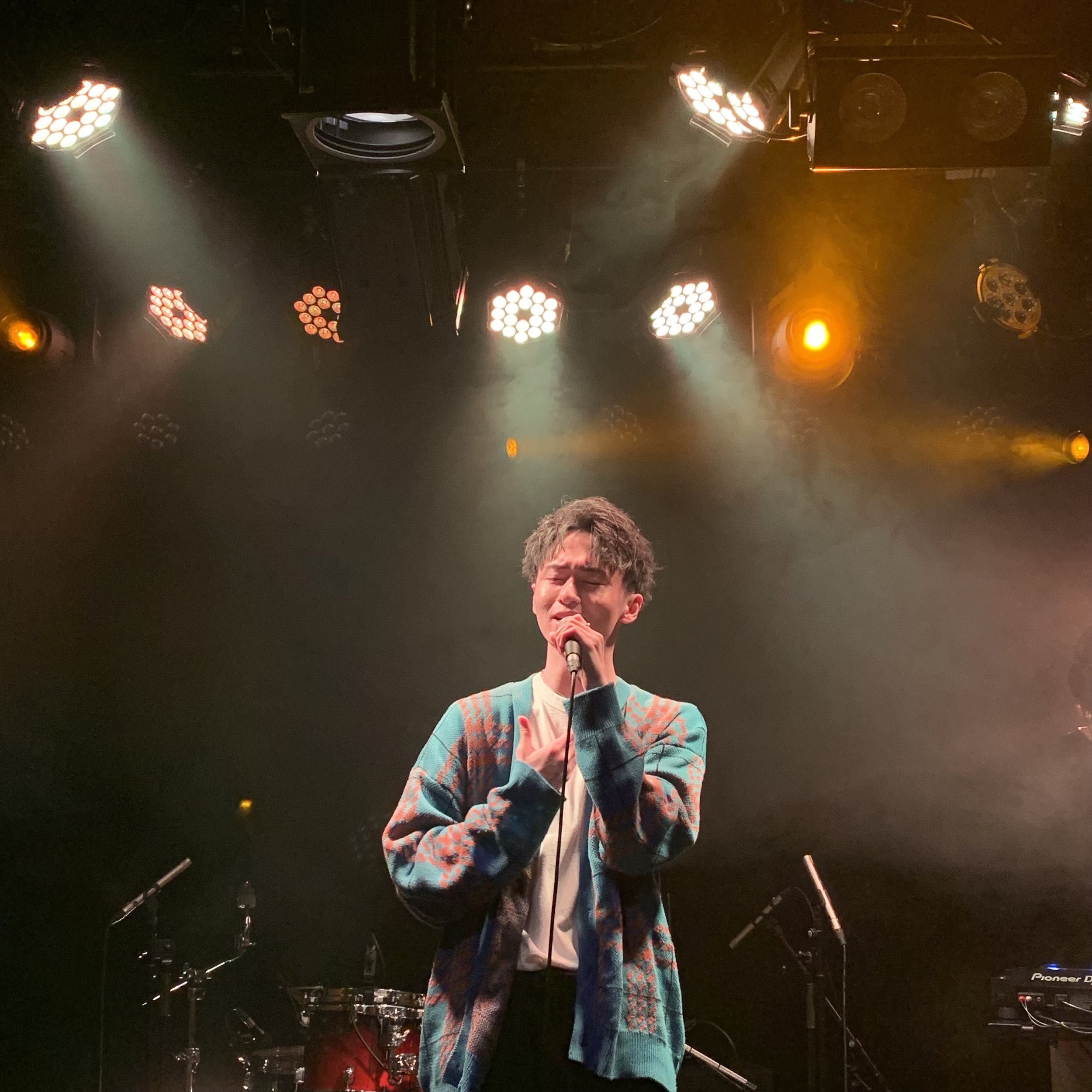Getting Closer - Interview with sangdei
Blessed with a smooth, mellow voice influenced by classic soul and R&B, Tokyo-based singer-songwriter sangdei is looking to make his mark on the Japanese music scene. In this exclusive interview for Tokyo ON, we learn the experiences that shaped him as an artist and where he’s heading next
Tokyo ON: Tell us about your childhood in Japan, did you play musical instruments or sing when you were young?
sangdei: I tried to learn how to play the piano when I was like 12 but it didn’t really work out because I wasn't really interested in playing instruments back then. Also, I always liked singing songs but I never trained professionally.
TO: I’m surprised that you didn’t receive professional training! You sound really natural and confident. How did you work on your singing style?
s: Well, I kept singing my favorite artists’ songs and I kinda got the hang of how to sing! I also practice singing a lot of rap songs almost every day.
TO: Did your parents influence your music taste?
s: My mom always played all kinds of music like R&B, Soul, and Jazz in the house so I’ve always been a fan of music since I was a little kid. I can say that she definitely played a major role in forming my music taste.
TO: Why did you move to Australia?
s: I moved to Australia to study abroad. I used to live in the countryside of Japan so I’ve always wanted to study abroad to explore the different parts of the world and experience something new.
TO: What was it like when you first arrived?
s: I could barely speak any English so I struggled a lot to communicate with people as Australians speak really fast. I was kinda depressed about how bad I was at speaking English at first.
TO: How did you overcome that challenge?
s: I never gave up on speaking English with people really, also I watched a lot of interviews of my favorite rap artists and imitated what they were saying in the interviews so I could practice my pronunciation and phrases.
TO: How did your music direction change while you were in Australia? What are you listening to these days?
s: My music taste changed heavily when I was introduced to hip-hop music by the local students at the high school. I started listening to J. Cole and 2pac and became a fan of conscious rap. I just really loved how they spread important messages through music and until then I had never listened to artists who express their emotions at that level. Especially J. Cole's music helped me a lot when I was going through tough times.
TO: Do you miss anything about Melbourne?
s: What I miss about Melbourne was the variety of foods and restaurants that the city had. I used to go to Chinese and Vietnamese restaurants a lot with my international friends. I also loved the beautiful scenery of Melbourne city. I always felt like I was in Europe while walking through the city.
TO: Not many Japanese people get to have that kind of experience living overseas for an extended period of time, what do you think you gained from it?
s: I experienced so much stuff back in Melbourne and one of the biggest lessons that I've learned is to be open-minded and think outside the box. I've experienced racism and I learned that you should never judge people by their skin color, race, or religion. Everyone is different, that's what makes you unique and beautiful, and you should never be ashamed of yourself because being a clone of somebody else would kill your personality.
TO: Why did you choose Tokyo as your base of activity?
s: I go to a university in Tokyo. That’s pretty much why I live here now but I always knew Tokyo would be the best place to pursue my passion. Also, the amount of information and opportunities in Tokyo is insane.
TO: What are some of your favorite things to do in Tokyo?
s: What I love to do in Tokyo is to go to concerts of my favorite artists. Seeing artists singing in front of me is such an incredible feeling. I’m so glad that more live houses are able to hold live concerts now compared to the peak of the pandemic.
TO: Sometimes when you sing in Japanese, your pronunciation sounds almost western in how you emphasize syllables, is that intentional?
s: Yes!! I try to enunciate Japanese sounds just like English words. Japanese sounds a bit choppy and stiff and it doesn't really mix well with other languages even if you try to. Also, it's kinda hard to create groovy sounds if you're only using Japanese words. I've always liked how English sounds gentle in R&B music so I try to soften up the sounds of Japanese by mixing English sentences.
TO: I’m not surprised that you’ve linked up with Solgasa, it seems like everyone in there has an international connection. How did you meet them?
s: I was a big fan of one of the artists from Solgasa and I met that artist back in 2021. Since then I had a connection with this artist and he invited me to a Solgasa event!
TO: Could there be any collaborations with Solgasa members in the future? Will you ever come back to Melbourne to perform someday?
s: When I get better at making music, I would definitely like to collaborate with one of the artists from Solgasa. They are honestly the most talented and hottest group of artists in Tokyo right now. And yes, If I become famous enough to perform in Melbourne I would definitely visit Australia again.
TO: As an artist, what is your dream?
s: My dream is to spread positive messages through my songs and hopefully encourage others just like my favorite artists helped me through tough times. Also, I want to break the barrier between J-pop and western culture music so younger Japanese artists would have more opportunities to create what they want and still be able to succeed in the Japanese music industry. I feel like many young Japanese artists are influenced by western music but give up on creating their own sounds as J-pop occupies the mainstream of music in Japan. Since I'm heavily influenced by hip hop and R&B music, I try to incorporate different sounds and styles from other genres into my music so hopefully more Japanese people get used to foreign sounds. If I could influence Japanese music listeners and the industry then I believe that I could make a pathway for younger Japanese artists.
TO: Thanks for talking with us and we’ll see you soon!




